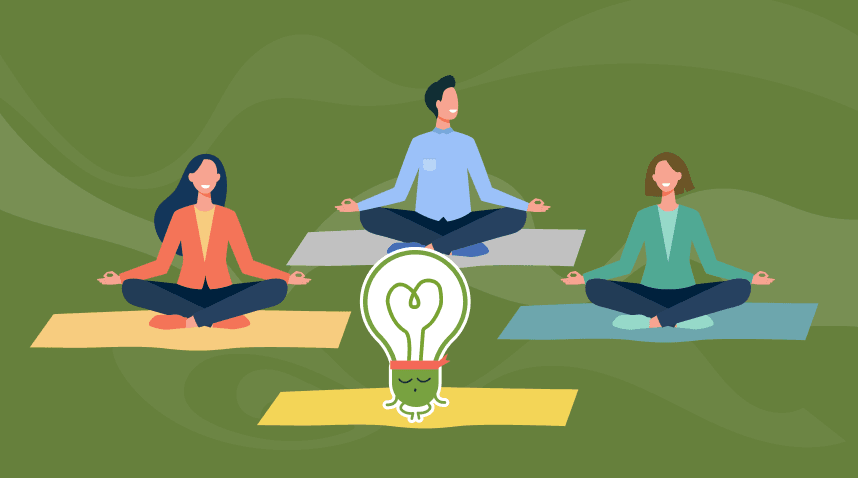TLDR: How often have we, after a long day at work or school, tried to unplug ourselves from reality by watching dramas and playing games? What if there was another way to think about it?-What role would the Dhamma and Buddhist teachings play in such a game?
Having loved games when I was younger, I recently started thinking about how I would explain Samsara and Buddhism in gaming terms:
Samsara: A ridiculously difficult game you’re stuck in, designed to distract you and make you fail.
Buddha: The first player in our history to have cleared this game – maxed out all his stats, and skills, played every single class and can tell you what strategy to take depending on your stats/inclinations. For example, towards King Pasedani, who was attached to worldly affairs, the Buddha used a simile, comparing death to a natural disaster approaching. Having the king realise by himself that his wealth and usual methods in warfare would not fend off death, Buddha managed to rouse urgency in him to practice the Dhamma.
Dhamma: The very comprehensive tutorial/walkthrough compiled by the other players who had been instructed by him. The walkthroughs are apparent here and now, leading inwards to those who follow the methods laid out.
Sangha: Pro-gamers who are wholly committed to clearing the game – examining and practising the tutorial. Being able to be in contact with one of such professionals is a great blessing – as their experience and explanation of the tutorial can often bring about insight, and help us to clear our doubts to progress on the right path of clearing the game.
Arahants: Players who followed the tutorial set out by the Buddha and cleared the game.
Kalyana-Mittas (Spiritual Friends): Party/Guild members, who remind you that you need to clear the game, discuss the tutorial/strategies to clear the game and do practice runs with you. (Very helpful in clearing the game!)
Unwise: Players who get distracted by the side quests, enjoying themselves a bit too much. They may also encourage one to max the wrong stats/skills, or get distracted with side-quests (such as farming resources to purchase unnecessary aesthetic upgrades that do not help with clearing the main quest. )
Bonus:
Bodhisattvas – Players who have enough stats/resources to clear the game but hang around to max their stats and carry noob players.
Paccekabuddhas – Players who have cleared the game without the help of Buddha or the tutorial, because they have sufficient stats/skills to do so.
—
There are several ways we can apply similar analogies on how we can make learning or practising the Dhamma easier. Here are 3 tips to make the ‘Game’ more peaceful and smooth.

Seeking Dhamma in a medium we are able to understand and apply in our daily lives:
There are many times a written walkthrough becomes too wordy and difficult to understand or execute.
In cases like this, one may go to a streaming site and watch video walkthroughs to see how other experienced players have cleared a particular dungeon. Some video walkthroughs even explain and break the tutorial down into parts to show us exactly what skills to equip and when to use them. By watching these and going on practice runs frequently, we slowly gain the skills and knowledge needed to tackle these monsters and dungeons.
We can look at the Dhamma this way too – if we find jumping straight to reading suttas with no context, it can be counter-productive. We can find Dhamma talks given by the Sangha, and find someone whose explanation of the Buddhist teachings “make sense” to us.
The important thing is to apply the Dhamma in our daily lives and the situations we find ourselves in. This way, we can slowly build up our skills and knowledge, to slowly gain a better understanding of the teachings.

The importance of spiritual friendships
Going on practice runs in Dungeons, or grinding through a game may feel tedious and boring sometimes – but by forming parties with other players, practice runs and raids are made enjoyable.
Sometimes we can learn from their experiences and discuss strategies, to share resources with each other as well. In the same vein, it’s nice to have a community to have meditation sessions, to share and discuss the teachings, and to motivate each other (especially in times when we don’t feel like practising!)
Seeing unwholesome actions as the influence “debuffs”
In games, we can see certain status afflictions and debuffs above a character’s avatar – while we don’t have these indicators in real life, we can try to imagine them in a way that’s helpful to the practice.
For example, we can try to see certain individuals in our lives as players who are inflicted by these debuffs (ignorance, ill-will and greed) when they do something unwholesome.
(I imagine ill-will to be like a ‘berserk’ state where one loses control of the character, causing harm to himself and others around him.) Recognise that these debuffs will cause these individuals to suffer for a long, long time to come.
We may also try to apply this to ourselves. When we have a thought that may cause us to do unskilful actions or say certain things, we can recognise that we may be under the influence of these debuffs.
We can slowly build up our “stats” in mindfulness so that we can recognise these debuffs when unwholesome thoughts arise, and act in a more skilful manner. The Buddha’s Chief Disciple, Sariputta, illustrated it well in this sutta in dealing with resentment.
Conclusion
Unlike games, we’re not able to see how much durability our equipment has left. All of us, equipped with our human bodies, are inevitably headed towards old age and death.
In fact, our next set of equipment may not be as ideal to progress in the main game. To be born as a human, to have the mental faculties to learn, contemplate and practice the Dhamma is so rare and precious!
Therefore, we must constantly remind ourselves to practice whenever we have the chance.
Wise-steps:
- Seek out wise companions to practice the Dhamma together
- Cultivate mindfulness so that we’re able to see unwholesome thoughts as they arise
- Constantly remind ourselves of the inevitability of death


